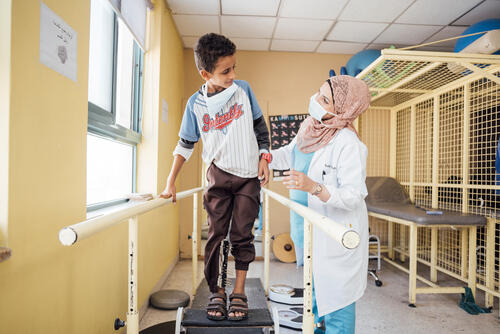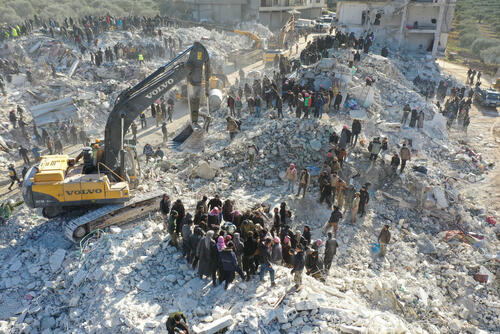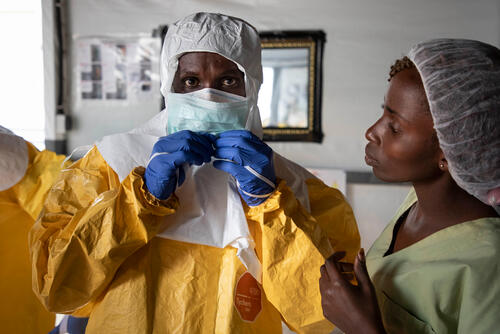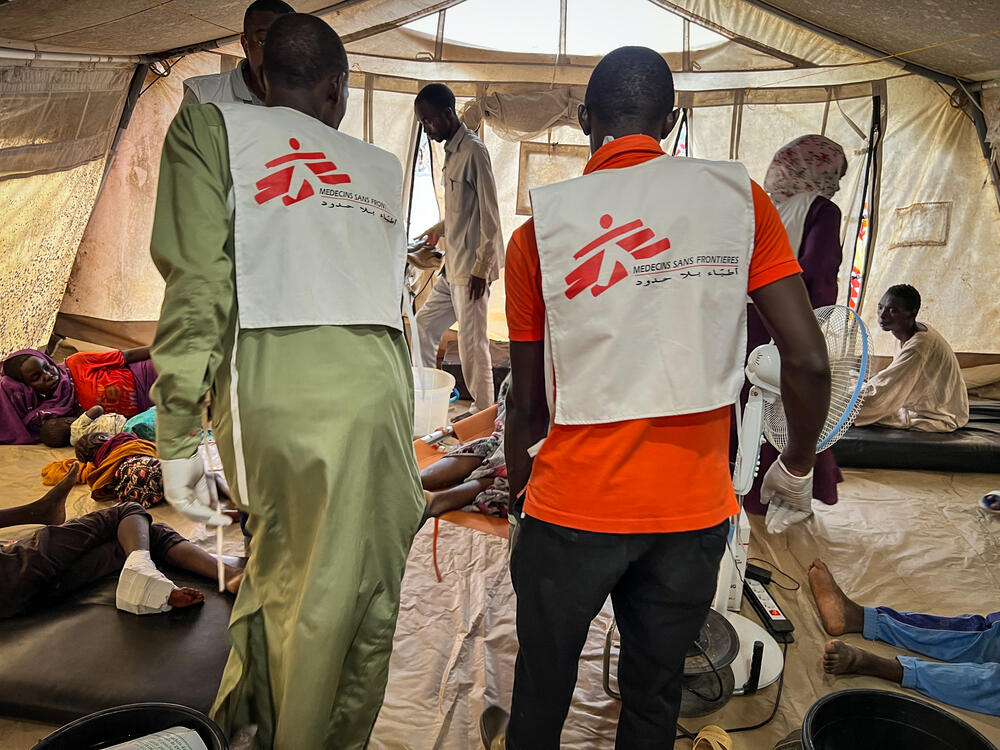Emergency medical care
Since 1971, MSF teams have responded to fast-moving humanitarian emergencies with rapid and effective medical aid.
We are often among the first humanitarian responders on the ground, providing emergency care and coordinating life-saving logistics. For example, in the catastrophic 2023 Syria- Türkiye earthquakes, our staff were treating survivors within the first hours.
However, there’s one key reason why MSF teams in particular are often able to respond so quickly: because we are already there.
Worldwide, in many places that are vulnerable to a humanitarian disaster – regions already gripped by conflict or struggling with a crumbling healthcare system – MSF teams may have been present for years, running long-term projects and supporting local medical staff.
For example, in October 2023, as the Israel – Gaza war rapidly developed into a humanitarian disaster in the Gaza Strip, MSF staff at projects that had been established for decades could immediately pivot to treat the wounded in the rolling mass casualty incidents.
Spotlight: The E-Desk
In each of MSF’s six operational centres there is a specialist unit known as the E-Desk. Collectively, they form our rapid response ‘emergency team’.
When a new and unpredictable crisis erupts, it’s the E-Desk that will lead the way. They aim to reach even the most remote crisis zone within 72 hours to begin coordinating the wider MSF response.
Once deployed, they then call up experienced MSF staff from a pool of on-standby humanitarian, medical and logistical experts.
Within days, a full-scale relief effort can be launched.
The ‘explo’ and emergency logistics
Even if MSF is not already active in a country, we can deploy within hours.
An emergency team will be dispatched to perform a vital ‘explo’ – a rapid assessment of the medical needs on the ground that helps us coordinate the initial humanitarian response, including the skills and supplies that are needed.
Our life-saving logistics network will then kick into action.
From state-of-the-art warehouses in Brussels, Bordeaux and Dubai, we can dispatch equipment, medicines and supplies that can be in the air and on the way the same night.
When the war in Ukraine rapidly escalated in 2022, several tonnes of MSF medical supplies were soon crossing the border and heading towards frontline hospitals.
Discover more: Emergency logistics
MSF has also developed pre-packaged disaster kits, including a complete surgical theatre that fits in the back of a Land Cruiser, an innovative obstetrics kit and even an inflatable hospital. These kits are now used as models by emergency relief organisations worldwide.
Examples of our work in emergency medical care include:



